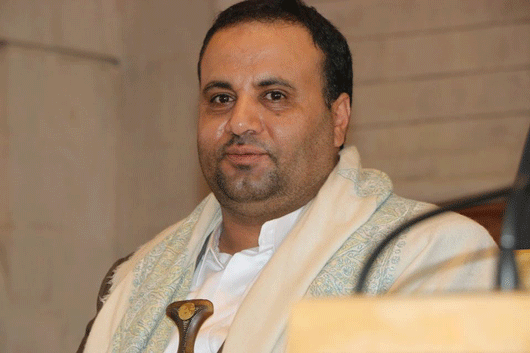
Local Editor
The head of Yemen’s Supreme Political Council, Saleh al-Sammad, on Tuesday issued decree No. 15 for 2016 for granting a general amnesty.
The decree was ordered to be published in the official gazette as following:
For giving an opportunity to Yemeni nationals who were involved in supporting and serving the Saudi aggression and its allies against Yemen, to return back to the homeland and enjoy full rights of peace and public life, and to share in re-building the country.
And for the country’s higher interest, the President of the Supreme Political Council decides:
Article (1) - Granting comprehensive amnesty to those, whether civilians or affiliated military individuals, who took part by word or practical action in supporting the aggression by Saudi Arabia against Yemen since March 26, 2015, but under the following conditions:
- Whoever corrects his stance, renounces the aggression by word or action and return back to the homeland within two months of issuing this decree.
- Whoever returns to his home by his own choice and renounces fighting alongside the aggression before the issuance of this decree.
- Whoever renounces battling alongside the enemy and join the ranks of the national army and popular committees.
- All arrested on charges of backing the aggression, during the issuance of the decree, once they present a pledge to act in good behavior and reject the aggression or supporting it.
Article (2): All specific categories in the previous article enjoy the benefits of the general amnesty that allows them to fully exercise their civil and political rights in accordance with the Constitution and laws.
Also they will not be prosecuted or sued and all charges before the decree would be dismissed against them.
Article (3): The amnesty will not include those who provoked the aggression against Yemen.
- Those who committed crimes against humanity and helped provide GPS coordinates to hit the Yemeni people and infrastructure.
- Anyone who committed or is associated with committing terrorist crimes.
- Anyone who committed crimes of looting and attacking families.
- Prisoners who escaped before and during the aggression.
- Anyone arrested while he was fighting in the ranks of the aggression after the expiry of the amnesty period specified in the Article (1) of this decree.
Article (4): This amnesty does not preclude the rights of citizens from prosecuting those granted amnesty in case of any relating crimes against any of the citizens.
Article (5): Those granted amnesty should come to the reception committees formed by the political council to obtain official document that states their situation, secures their lives, and keeps avoiding them from being exposed to future legal interrogation.
Source: News Agencies, Edited by Website Team